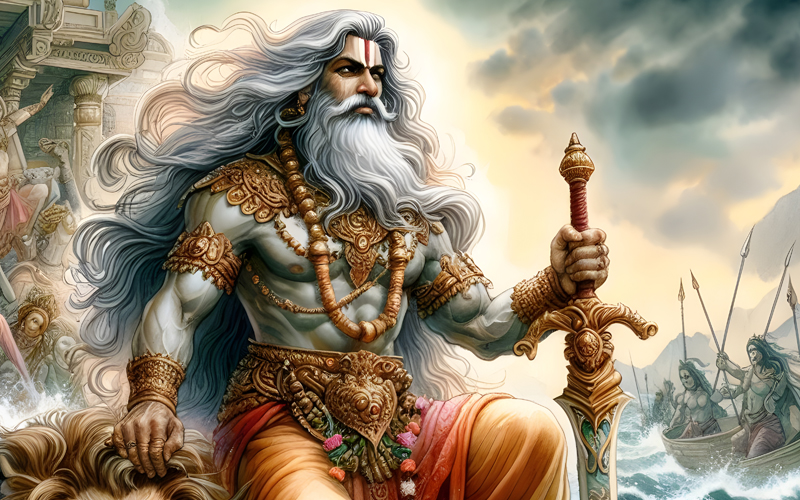Physical Address
Empirical System, 105 First Floor Pitru Krupa, Opp. R.K. Desai College, Koparli Road, Vapi (Gujarat) 396 191
Physical Address
Empirical System, 105 First Floor Pitru Krupa, Opp. R.K. Desai College, Koparli Road, Vapi (Gujarat) 396 191

Bhishma Pitamah, a central character in the Indian epic Mahabharata, is known for his unwavering wisdom, discipline, and commitment to dharma. As he lay on the bed of arrows during the Kurukshetra war, he imparted profound teachings to the Pandavas and others who came to seek his counsel. These teachings, often referred to as the Bhishma Parva or Bhishma Upadesha, cover various aspects of life, governance, duty, and spirituality. Here are some of the key teachings:
1. Dharma (Righteousness)
Bhishma emphasized the importance of adhering to dharma, or righteous conduct, in all aspects of life. He advised that one should always strive to perform their duties selflessly and uphold moral principles, even in the face of adversity. Dharma, he said, sustains the world and is the true path to inner peace.
2. The Duties of a King
He outlined the responsibilities of a king, focusing on just and fair governance. A ruler should protect his subjects, ensure justice, and work for the welfare of the kingdom. A king must be wise, compassionate, impartial, and act as a servant of the people, not as their master.
3. Stages of Life (Ashramas)
Bhishma explained the four stages of life—Brahmacharya (student life), Grihastha (householder life), Vanaprastha (hermit life), and Sannyasa (renounced life). Each stage has its own duties and responsibilities. One must fulfill the obligations of each stage with sincerity and balance, progressing towards spiritual liberation.
4. Bhakti (Devotion)
He highlighted the significance of devotion to God, especially in the form of unwavering faith and surrender. Bhishma’s own devotion to Lord Krishna was evident in his final moments. He taught that sincere bhakti leads to inner purity and liberation (moksha).
5. Karma and Reincarnation
Bhishma spoke about the law of karma, explaining that one’s actions in this life determine future births and experiences. He encouraged leading a virtuous life and performing noble deeds, as these contribute to spiritual evolution and a better rebirth.
6. The Power of Truth
Truthfulness was a virtue Bhishma held in the highest regard. He believed that speaking the truth is essential for personal integrity and social harmony. Lies and deception, he said, lead to chaos, suffering, and moral downfall.
7. Control of Senses
He advised on the importance of self-control and mastery over the senses. Discipline in thoughts, words, and actions is necessary for personal growth and spiritual development. Without restraint, one becomes a slave to desires and loses clarity of purpose.
8. The Transitory Nature of Life
Bhishma reminded everyone of the impermanent nature of life and the certainty of death. He encouraged detachment from material possessions and emotional attachments, urging a focus on spiritual goals and inner contentment.
9. Compassion and Forgiveness
He emphasized compassion toward all beings and highlighted the importance of forgiveness. Holding on to anger and resentment, he said, brings suffering, while forgiveness purifies the soul and brings lasting peace.
10. The Role of Women
Bhishma recognized the significant role of women in society and stressed that they must be treated with respect and honor. He spoke about their virtues, their contributions to family and social harmony, and the need to uphold their dignity at all times.
These teachings, delivered from his deathbed on the battlefield, are timeless and continue to resonate in Indian philosophical and ethical thought. Bhishma’s wisdom provides guidance on how to lead a balanced and righteous life, fulfill one’s duties with integrity, and seek spiritual enlightenment through devotion, self-discipline, and compassion.